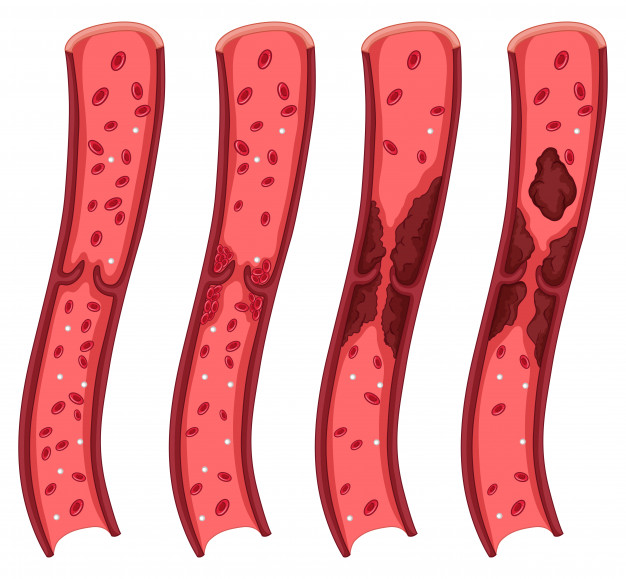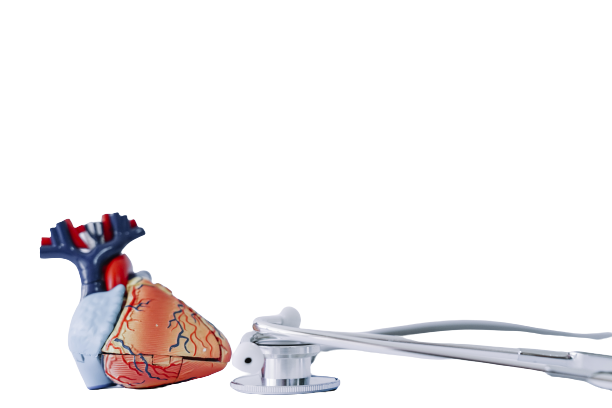Book Your Appointment
Coronary Bypass Surgery
Get Solution At Swasthyam Superspeciality Hospital
Coronary Bypass Surgery
Coronary bypass surgery redirects blood around a section of a blocked or partially blocked artery in your heart. The procedure involves taking a healthy blood vessel from your leg, arm or chest and connecting it below and above the blocked arteries in your heart. With a new pathway, blood flow to the heart muscle improves.
Coronary bypass surgery doesn’t cure the heart disease that caused the blockages, such as atherosclerosis or coronary artery disease. However, it can ease symptoms, such as chest pain and shortness of breath. For some people, this procedure can improve heart function and reduce the risk of dying of heart disease.

Why it’s done?
Coronary bypass surgery is one treatment option if you have a blocked artery to your heart.
You and your doctor might consider it if:
- You have severe chest pain caused by narrowing of several arteries that supply your heart muscle, leaving the muscle short of blood during even light exercise or at rest.
- You have more than one diseased coronary artery, and the heart’s main pumping chamber — the left ventricle — isn’t functioning well.
- Your left main coronary artery is severely narrowed or blocked. This artery supplies most of the blood to the left ventricle.
- You have an artery blockage that can’t be treated with a procedure that involves temporarily inserting and inflating a tiny balloon to widen the artery (angioplasty).
- You’ve had a previous angioplasty or placement of a small wire mesh tube (stent) to hold the artery open that hasn’t been successful. Or you’ve had a stent placement, but the artery has narrowed again.
Coronary bypass surgery might also be performed in emergency situations, such as a heart attack, if you’re not responding to other treatments.
Risks
Because coronary bypass surgery is an open-heart surgery, you might have complications during or after your procedure. Possible complications include:
- Bleeding
- An irregular heart rhythm
- Infections of the chest wound
- Memory loss or trouble thinking clearly, which often improves within six to 12 months
- Kidney problems
- Stroke
- Heart attack, if a blood clot breaks loose soon after surgery
Your risk of developing complications is generally low, but it depends on your health before surgery. Your risk of complications is higher if the surgery is done as an emergency procedure or if you have other medical conditions, such as emphysema, kidney disease, diabetes or blocked arteries in your legs.

Risks



Because coronary bypass surgery is an open-heart surgery, you might have complications during or after your procedure. Possible complications include:
- Bleeding
- An irregular heart rhythm
- Infections of the chest wound
- Memory loss or trouble thinking clearly, which often improves within six to 12 months
- Kidney problems
- Stroke
- Heart attack, if a blood clot breaks loose soon after surgery
Your risk of developing complications is generally low, but it depends on your health before surgery. Your risk of complications is higher if the surgery is done as an emergency procedure or if you have other medical conditions, such as emphysema, kidney disease, diabetes or blocked arteries in your legs.
Results
After surgery, most people feel better and might remain symptom-free for as long as 10 to 15 years. Over time, however, it’s possible that other arteries or even the new graft used in the bypass will become clogged, requiring another bypass or angioplasty.
Your results and long-term outcome will depend in part on taking your medications to prevent blood clots, lower blood pressure, lower cholesterol and help control diabetes. It’s also important to follow healthy-lifestyle recommendations, including these:
- Stop smoking.
- Follow a healthy-eating plan, such as the DASH diet.
- Achieve and maintain a healthy weight.
- Exercise regularly.
- Manage stress.
Prevention
The same healthy lifestyle changes recommended to treat atherosclerosis also help prevent it. These include:
- Quitting smoking
- Eating healthy foods
- Exercising regularly
- Maintaining a healthy weight
-
Just remember to make changes one step at a time, and keep in mind what lifestyle changes are manageable for you in the long run.


Message Us
Get In touch with us. Ask Any Question or Book Your Appointment Now
Emergency
+91-8600888444
Book An Appointment
0712-2222111
Contact Us
Location
97/98 Vivekanand Nagar, Near Sai Mandir, Wardha Road, Nagpur
Contact for
Emergency :- +91-8600888444
Book An Appointment:- 0712-2222111
